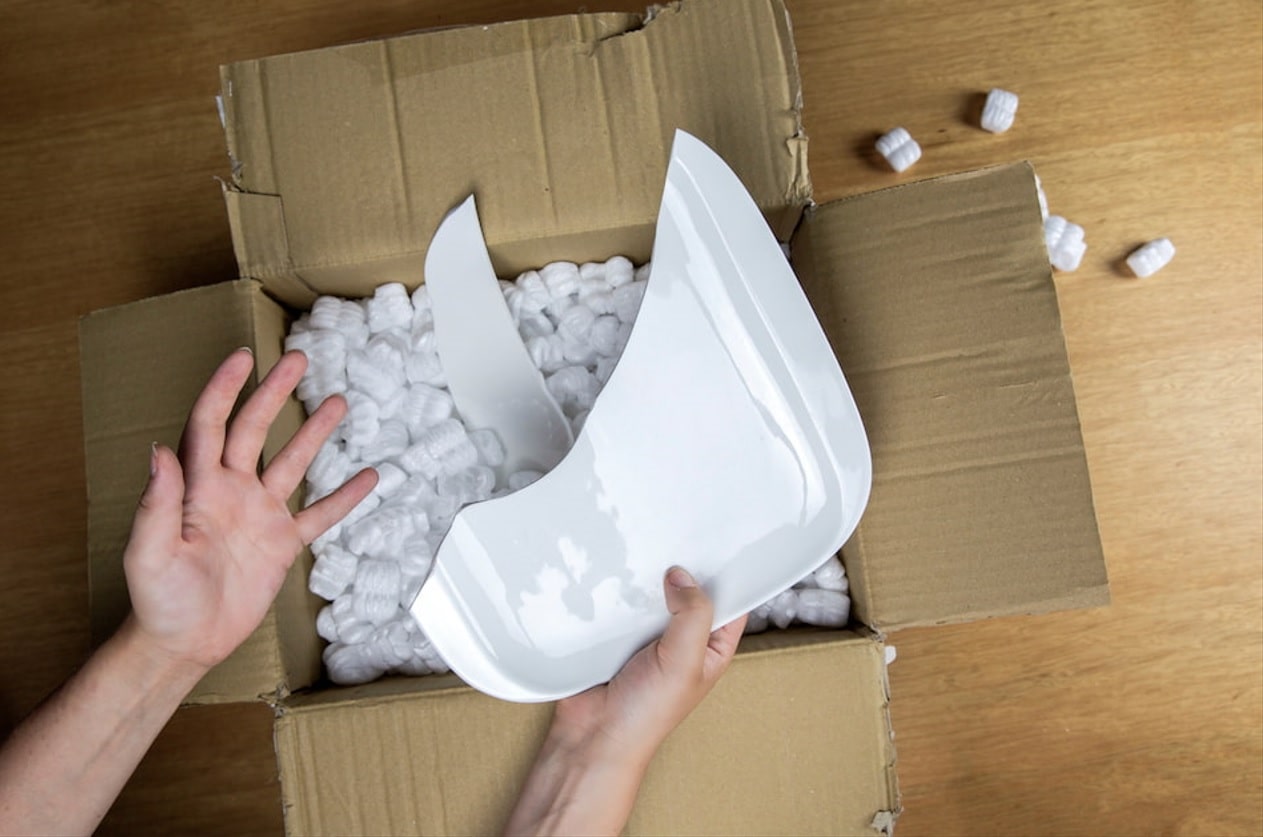
What Is Moving Insurance and Is It Important for Your NJ Move?
Moving your belongings from your old home to your new one is a difficult process. You can only hope that everything arrives in one piece. While you’ll have better chances of a damage-free move when using professional NJ movers, there’s always the possibility that something could break. For a more stress-free move, you might consider purchasing moving insurance
What is Moving Insurance?
In simple terms, moving insurance is a protection plan for your belongings during a move. You generally have three available options:
- Released value protection - the most basic coverage protection.
- Full value protection - coverage for the full replacement of items
- Third party insurance - more comprehensive coverage for a variety of potential issues
All moving companies are required by federal law to have released and full value protection. These aren’t technically ‘insurance’ (as moving companies cannot sell insurance) and instead are simply an amount of liability the will pay if they damage an item during the move and thus don’t cover every potential problem overs m that might arise. Actual moving insurance is only available through third parties.
Which is Better: Valuation vs. Insurance
There is a fundamental difference between valuation and insurance and that’s typically how much coverage it provides. Unless you’re getting the cheapest moving insurance on the market, third party options tend to provide coverage for a wider variety of scenarios than valuation. More importantly, you can only get the valuations from the moving company that you hire. Different companies offer different types of valuations, so make sure to ask about their options before hiring them. With that said, the most common options are:
Released value protection
Covers $0.60 per pound per item for damaged goods. Best for short distance/local moves with only a few high value items. This valuation comes at no cost to you so it’s a good way to save money if you’re on a tight budget. However, if something of high value does get damaged, you likely will only get a small pittance in return. As well, the coverage might be avoid if you pack your own things.
Full Value Protection
As the name suggests, full value protection provides more coverage than released value. While this will cost extra money, it offers a lot more coverage for your belongings. A common valuation for this option is $6 per pound per item. The movers will provide one of three options for damaged items:
- Repair it
- Replace it with something of equal current market value
- Cash settlement for current market value of damaged item
While it can cover higher value items that are worth $100 per pound or more, think fine china or electronics, you will need to inform the movers of each of these items in writing to receive coverage. If you don’t, then they can limit how much liability they take. Plan on using short term storage? Use the one provided by the moving company. Your items will still be protected by the mover’s valuation as well as their own storage insurance. If you use a third-party storage solution and something gets damaged while in storage, the moving company will not be liable.
How much the coverage costs is dependent on the total market value of all your items. Most companies charge around 1% of the total value. This is perfect if you have a lot of expensive items you need to move and/or if you are moving long distance.
As good as full value protection might be, it still doesn’t cover everything, most notably things that are out of the movers control. This includes damages from natural disasters, fires, pests, mildew, mold, and more. And much like released value protection, if you pack the boxes, the movers won’t be held liable for any damage as the damages could have been caused by your improper packing skills. That’s why you should request the movers to pack all your fragile items so if it does get damaged during the move, you are not to blame!
Third Party Insurance
Unlike valuations, third party insurance tends to provide greater coverage. Of course, you’ll need to shop around to find a policy that provides the coverage you want. For the most part though you’ll want something that covers damage from:
- Natural disasters
- Mechanical and electrical accidents
- Fires
- Mold and mildew
- Insects and pests
Your moving insurance coverage lasts up to 90 days if you need to store your stuff in your movers’ storage option. You can even extend it if necessary. However, if you plan on using self-storage ask the company if they offer coverage as many do not. Some policies you might want to consider include:
- Liability - compensates you for the your loss on top released value protection
- Floater - applies to specific items like jewelry or fine china
- Special perils contents - applies to damage to specific items sans breakables
- Trip transit - threats to your items while movers are in transit, mainly accidents caused by other people, automobile/personnel failure, or natural disasters
Insurance prices vary across the board and are based on the value of all your items, level of deductible you choose, and the destination. With that said, you can expect to pay at least $200. If this seems too expensive, consider the cost of having to replace your electronics or artwork.
Do You Need Moving Insurance?
Ultimately, the decision requires you to take stock of your items and figure out the value of everything. While professional movers do their best to get everything to your new place without a scratch, there’s always the possibility something might get damaged. If you’re not moving very far or very much, you can probably get away with the released value protection and save yourself a few hundred dollars. However, investing in full valuation protection and/or third party moving insurance might be the better option if you have a lot of valuable items. And while it might add to your moving budget, it could save you a lot of money should something happen. Of course, the hope is that everything arrives intact at your new home, but you can at least have peace of mind when you purchase insurance that you’ll be able to receive some help.
If you’re ready to make your NJ move, make sure to work with professional NJ movers as they can provide you with information on their valuations and even recommendations for moving insurance.
